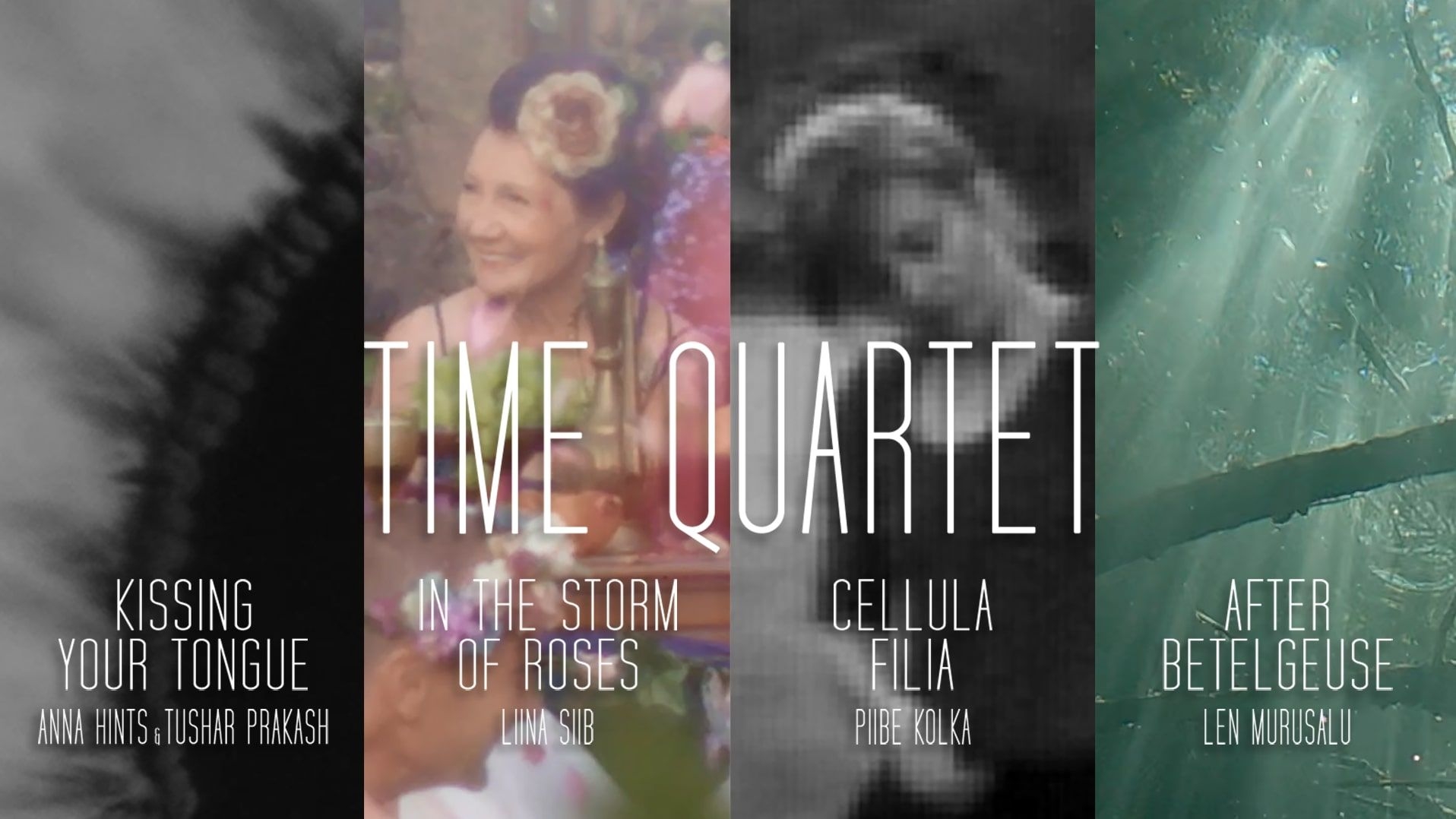
Time Quartet marks the launch of the new PÖFF Expanded programme dedicated to artists’ and experimental films.
The 26th edition of the Black Nights Film Festival premieres an expanded cinema project, the Time Quartet, which marks the launch of the new PÖFF Expanded programme dedicated to artists’ and experimental films.
The four films of Time Quartet explore human nature through time, language and empathy. Accompanied by live performative and visual arts elements, as well as the participation of filmmakers, the screenings constitute a unique shared experience in an immersive environment designed to push the boundaries of cinema.
According to the festivals’ director Tiina Lokk, PÖFF Expanded envisions a long-term outlook. “Inspired by Berlinale Forum Expanded and International Film Festival Rotterdam, PÖFF Expanded aims to blur the lines between cinema and visual arts and engage the creators and audiences of both fields”, said Lokk.
The programme’s curator and the producer of Time Quartet, Len Murusalu stated that the role of authors' film in visual arts is rising. “PÖFF Expanded helps advance genre-transcending and experimental films. Our goal is to lay the foundation for something that can evolve into a strong international collaboration and distribution platform”, added Murusalu.
Screenings times of Time Quartet at the Sõprus Cinema (Vana-Posti 8, Tallinn) are Nov. 22nd at 7 PM and Nov. 25th at 6PM. All films have English subtitles, followed by a discussion panel in English, moderated by Gareth Evans.
The films were made with support from Estonian Film Institute, Cultural Endowment of Estonia and Estonian Union of Photography Artists. Time Quartet was produced by ChronoLens, an artist’s film production company.
The four short films of Time Quartet are:
Kissing Your Tongue - by Anna Hints and Tushar Prakash
Two lovers, separated by languages, confess to each other in their own native tongues.
In the Storm of Roses - by Liina Siib
‘In the Storm of Roses’ reflects our time through the life choices of retired Estonian nurse Helgi Kuusik. We see her in a dream-like rose garden in Southern Estonia, which she established years ago thanks to working in Finnish hospitals and commuting between the two linguistically close, yet economically unequal countries.
The brief scenes of her idyllic rural garden resemble Victorian-era paintings while being linked with Helgi’s visit to her daughter’s family, who ended up living on the other side of the Gulf of Finland.
Cellula Filia - by Piibe Kolka
A conversation through time between a woman and her great-grandmother.
Piibe Kolka uses PXL2000 toy camera to record pixelated visuals and various messages on audio cassettes in an attempt to establish a time travelling communication. The film probes an epigenetic hypothesis that individual life experiences could influence biological inheritance and gene expressions. The result is a science fictional play between generations, addressing life histories, inherited doubt and the search for possible adventures.
After Betelgeuse - by Len Murusalu
A journey through the past and future myths of the dormant Livonian language.
World War II, mass deportations to Siberia and marginalisation during the Russian occupation caused the extinction of the language of the indigenous people of Livonia. Narrated in Livonian and inspired by a folk song as well as Finnic mythology, the story seeks hope in the perishing time and memories forgotten.